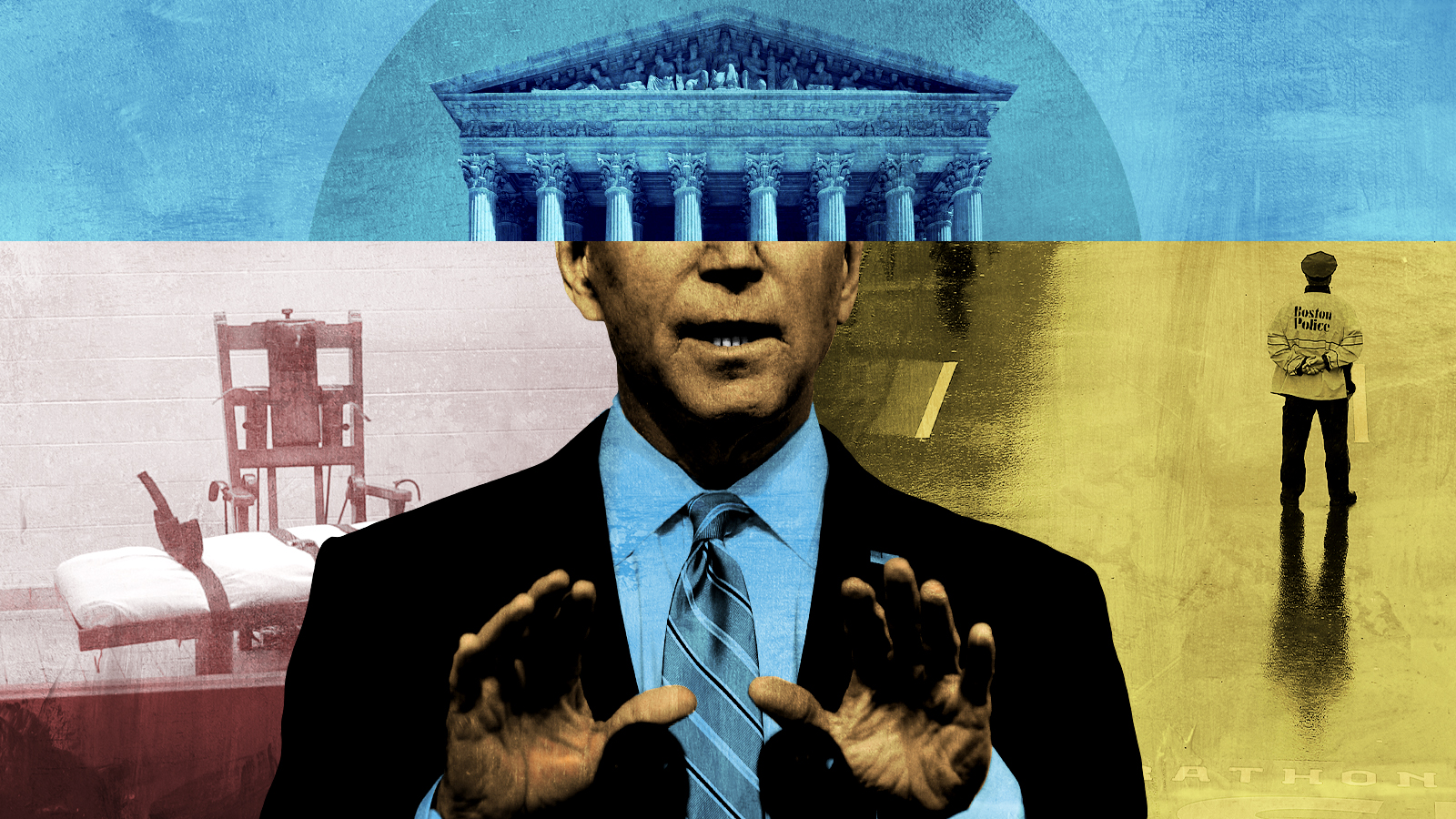Why Biden's team is pushing for a death penalty he won't execute


A free daily email with the biggest news stories of the day – and the best features from TheWeek.com
You are now subscribed
Your newsletter sign-up was successful
Supreme Court Justice Amy Coney Barrett asked a smart question this week: Why is President Biden's Justice Department trying to revive the death penalty sentence for the Boston Marathon bomber when it apparently has no intention of actually executing him?
"I'm wondering what the government's end game is here," Barrett said during Wednesday's hearing on the case. "So the government has declared a moratorium on executions, but you're here defending his death sentences. And if you win, presumably, that means that he is relegated to living under the threat of a death sentence that the government doesn't plan to carry out. So I'm just having trouble following the point."
The government's response to Barrett suggested the moratorium is merely temporary — but that's unlikely, at least while Biden is in office. As Hot Air's Ed Morrissey reminds us, Biden campaigned last year on a promise to "eliminate the death penalty." And when Attorney General Merrick Garland announced the moratorium on federal executions in July, he cited concerns about racism and the "troubling number" of death row exonerations. There doesn't appear to be significant action on Capitol Hill to address those concerns, so the Biden administration seems to be content to shelve planned executions instead.
The Week
Escape your echo chamber. Get the facts behind the news, plus analysis from multiple perspectives.

Sign up for The Week's Free Newsletters
From our morning news briefing to a weekly Good News Newsletter, get the best of The Week delivered directly to your inbox.
From our morning news briefing to a weekly Good News Newsletter, get the best of The Week delivered directly to your inbox.
A more realistic answer to Barrett's question is that the Justice Department's default setting is to maximally assert the power and prerogatives of the president and the federal government, even if that means defending policies and decisions the president himself doesn't like or personally intend to implement. It's why a George W. Bush administration lawyer once publicly rationalized a hypothetical question about torturing the child of a terrorist, and it's why the Biden administration has defended many (but not all) of its predecessor's claims of "executive privilege" to hide information from the public.
Some of this is about power: No president wants to narrow the boundaries of executive authority. And some of it is about the Justice Department's culture — attorneys general of both parties have asserted their department's "duty to defend" acts of Congress, even when those measures are constitutionally dubious.
That leaves the Biden administration in the odd position of arguing for a death penalty it doesn't support and won't carry out. That's easier than doing the difficult work of persuading Congress to end the federal death penalty. But as Justice Barrett indicated, it leaves a lot of people — the bomber, the families of his many victims — in a cruel limbo.
A free daily email with the biggest news stories of the day – and the best features from TheWeek.com
Joel Mathis is a writer with 30 years of newspaper and online journalism experience. His work also regularly appears in National Geographic and The Kansas City Star. His awards include best online commentary at the Online News Association and (twice) at the City and Regional Magazine Association.
-
 What to know before filing your own taxes for the first time
What to know before filing your own taxes for the first timethe explainer Tackle this financial milestone with confidence
-
 The biggest box office flops of the 21st century
The biggest box office flops of the 21st centuryin depth Unnecessary remakes and turgid, expensive CGI-fests highlight this list of these most notorious box-office losers
-
 What are the best investments for beginners?
What are the best investments for beginners?The Explainer Stocks and ETFs and bonds, oh my
-
 Epstein files topple law CEO, roil UK government
Epstein files topple law CEO, roil UK governmentSpeed Read Peter Mandelson, Britain’s former ambassador to the US, is caught up in the scandal
-
 Iran and US prepare to meet after skirmishes
Iran and US prepare to meet after skirmishesSpeed Read The incident comes amid heightened tensions in the Middle East
-
 Israel retrieves final hostage’s body from Gaza
Israel retrieves final hostage’s body from GazaSpeed Read The 24-year-old police officer was killed during the initial Hamas attack
-
 China’s Xi targets top general in growing purge
China’s Xi targets top general in growing purgeSpeed Read Zhang Youxia is being investigated over ‘grave violations’ of the law
-
 Panama and Canada are negotiating over a crucial copper mine
Panama and Canada are negotiating over a crucial copper mineIn the Spotlight Panama is set to make a final decision on the mine this summer
-
 Why Greenland’s natural resources are nearly impossible to mine
Why Greenland’s natural resources are nearly impossible to mineThe Explainer The country’s natural landscape makes the task extremely difficult
-
 Iran cuts internet as protests escalate
Iran cuts internet as protests escalateSpeed Reada Government buildings across the country have been set on fire
-
 US nabs ‘shadow’ tanker claimed by Russia
US nabs ‘shadow’ tanker claimed by RussiaSpeed Read The ship was one of two vessels seized by the US military
